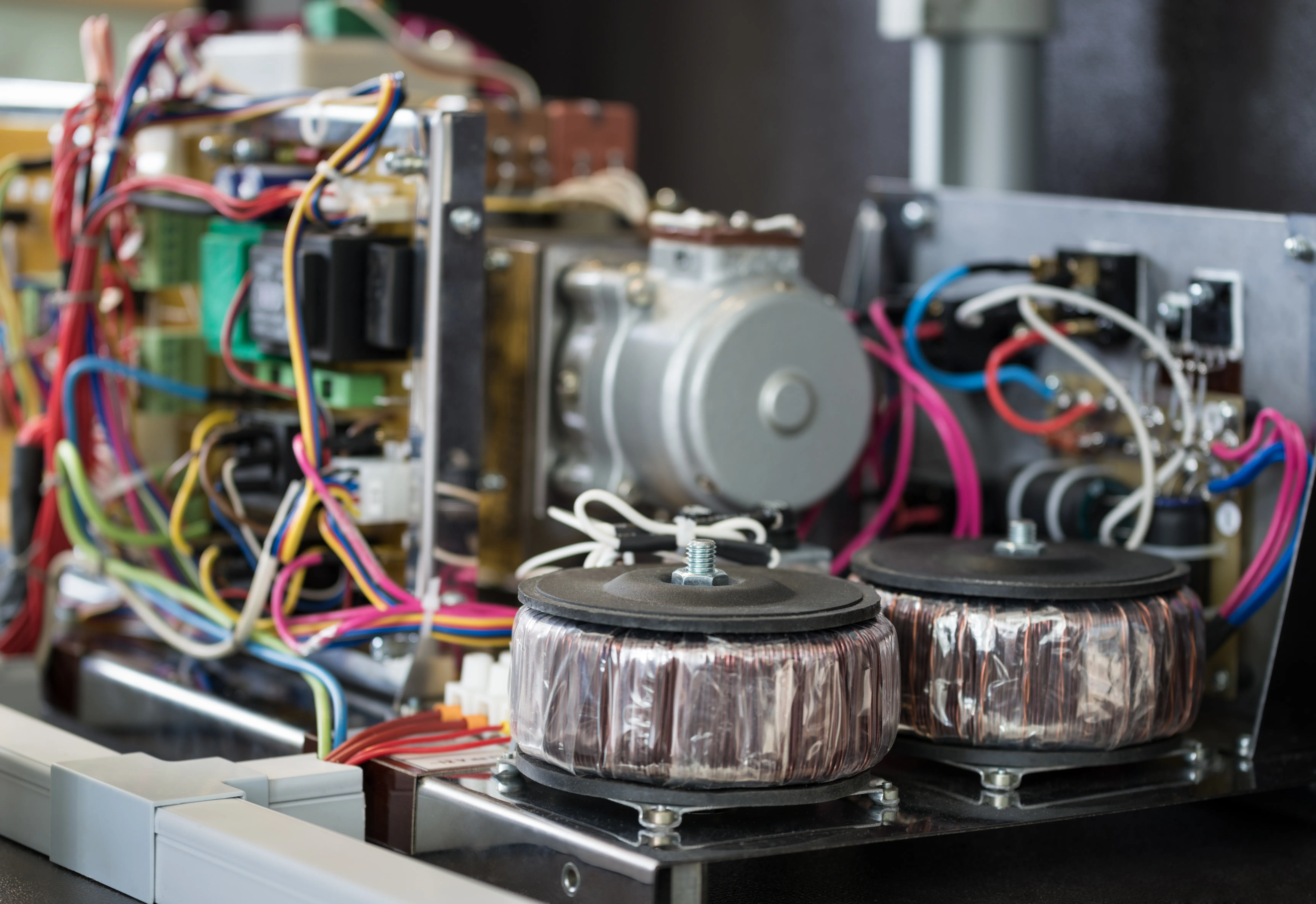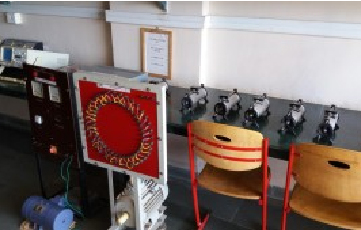Announcement
Get Ready for INDUS CUP 2K26! | Dates: 5–10 January 2026 | Stand a Chance to Win Cash Prizes up to ₹10,00,000!...Read more Get Ready for INDUS CUP 2K26! | Dates: 5–10 January 2026 | Stand a Chance to Win Cash Prizes up to ₹10,00,000!
We are excited to announce the Indus Hackathon 2025, an exhilarating one-day event organized by the CSE Department of Indus University....Read more We are excited to announce the Indus Hackathon 2025, an exhilarating one-day event organized by the CSE Department of Indus University.
26th ISTE Faculty Annual State Convention will be held at Indus University on April 27, 2023....Read more 26th ISTE Faculty Annual State Convention will be held at Indus University on April 27, 2023.
Get Ready for INDUS CUP 2K26! | Dates: 5–10 January 2026 | Stand a Chance to Win Cash Prizes up to ₹10,00,000!...Read more Get Ready for INDUS CUP 2K26! | Dates: 5–10 January 2026 | Stand a Chance to Win Cash Prizes up to ₹10,00,000!
We are excited to announce the Indus Hackathon 2025, an exhilarating one-day event organized by the CSE Department of Indus University....Read more We are excited to announce the Indus Hackathon 2025, an exhilarating one-day event organized by the CSE Department of Indus University.
26th ISTE Faculty Annual State Convention will be held at Indus University on April 27, 2023....Read more 26th ISTE Faculty Annual State Convention will be held at Indus University on April 27, 2023.


The M.Tech program in Electrical Power Systems spans two years, divided into four semesters, each lasting six months. Its primary objectives include fostering knowledge development and proficiency in designing, testing, and managing electronic power controllers and electrical machines. This specialized field demands candidates with strong analytical and numerical abilities, coupled with a solid foundation in physics and mathematics, to innovate new models and systems essential for the dynamic future landscape.
Students opting for this course not only delve into the core curriculum but also gain comprehensive insights into various related topics. Upon completion, candidates unlock numerous career opportunities in both the public and private sectors.
Power engineers, also known as stationary engineers in certain regions, are certified technical experts responsible for overseeing operations, maintenance, and quality assurance of mechanical systems within commercial and industrial facilities. Their duties encompass ensuring adherence to protocols, maintaining equipment integrity, and optimizing operational efficiency.
Eligibility criteria for M.Tech Power System Engineering include a bachelor's degree (BE/B.Tech) in a relevant discipline from a recognized university with a minimum aggregate of 60%. Some prestigious institutions conduct entrance examinations for admission.
The curriculum of M.Tech Power System Engineering encompasses cutting-edge technology in electrical system research, strength assessment, and quality management. Key topics covered include High Voltage DC Transmission, Industrial Electronics and Controls, Power Electronics and Applications, Wind and Solar Energy Conversion Systems, and Advanced Microprocessors and Microcontrollers.
Graduates of this program find employment opportunities in various sectors such as government organizations, companies, and departments like Indian Railways, BHEL, Indian Armed Forces, BSNL, HAL, State Electricity Boards, Hydro Power Plants, DRDO, and Thermal Power Plants. Private sector prospects include roles in electrical equipment manufacturing, telecommunications, and renewable energy sectors such as solar and wind energy. Additionally, graduates can pursue academia or further their studies by pursuing a Ph.D. or doctoral research in the field.
25% of the sanctioned strength of Management & NRI quota will be filled up based on merit as per the eligibility criteria decided by AICTE & Gujarat State Government and procedure laid down by ACPC.
The eligibility criteria are a minimum of 50% marks in B.E./B.Tech with the qualifying GATE Score or State level entrance exam for M.E./M.Tech
Course Duration
2 Years (4 Semesters)
Intake
18 Seats
Engineering competency: It is the ability to solve complicated engineering problems using knowledge of mathematics, science, engineering fundamentals, and an engineering speciality.
Analysis: Utilising the fundamental concepts of mathematics, the natural sciences, and engineering, formulate, identify, assess research writings, and analyse difficult engineering topics in order to arrive at confirmed findings.
Design and development solutions: Create answers to challenging technical problems as well as components or techniques for systems that satisfy the defined needs while correctly taking into account safety, cultural, and environmental considerations.
Sustainability and the environment: Recognise how professional engineering solutions affect societal and environmental environments and provide an example of how sustainable development is understood and required.
Communication: Communicate complex engineering tasks with the engineering community and society on a wide scale, for example, by comprehending and capturing effective reports and design documentation to provide persuasive presentations and get precise directions.
Project management: Demonstrate in-depth knowledge of engineering and management principles and apply them to your role as a team member and team leader working on projects across a variety of disciplines.
Power System Modeling & Analysis
Advanced Power System Operation & Control
Advanced Power System Protection
Workshops, Skill development programmes
Dissertation Phase I & Phase II In Semester-III & IV respectively
Power Electronics Designer: Designing and maintaining the hardware components of electrical systems is the responsibility of a power electronics designer.
Engineer in charge: Executive engineers are in charge of the design engineers and other engineers within their organisation or department.
Regulatory Officer: A regulatory officer verifies all products, estimates and distributes information, as well as verifies scientific and legal documents.
Application Engineers: Application engineers interact with corporate operations, keep track of staff needs, provide support, and comprehend the intricacies of networks and systems.
Assistant Chemist: Assistant chemists undertake the experiment or research to create new products and are in charge of executing laboratory testing.
Indus University has an autonomous vertical - Training & Placement Department (T & P Dept.) - that connects two vital ends: education and the industry. It exemplifies a link between schools and university constituent associations (entry-level input) and the sector (output-end at the finishing level).
The Training and Placement Department was established in 2006. It was previously affiliated with the Indus Institute of Technology & Engineering until becoming a part of the Indus University in 2012.
The Training and Placement Department is the hub for career assistance for students from all programmes and streams at the university. It provides students with overall career solutions by encouraging them to choose and pursue their ideal vocations.
25% of the sanctioned strength of Management & NRI quota will be filled up based on merit as per the eligibility criteria decided by AICTE & Gujarat State Government and procedure laid down by ACPC.
The eligibility criteria are a minimum of 50% marks in B.E./B.Tech with the qualifying GATE Score or State level entrance exam for M.E./M.Tech
Course Duration
2 Years (4 Semesters)
Intake
18 Seats
Engineering competency: It is the ability to solve complicated engineering problems using knowledge of mathematics, science, engineering fundamentals, and an engineering speciality.
Analysis: Utilising the fundamental concepts of mathematics, the natural sciences, and engineering, formulate, identify, assess research writings, and analyse difficult engineering topics in order to arrive at confirmed findings.
Design and development solutions: Create answers to challenging technical problems as well as components or techniques for systems that satisfy the defined needs while correctly taking into account safety, cultural, and environmental considerations.
Sustainability and the environment: Recognise how professional engineering solutions affect societal and environmental environments and provide an example of how sustainable development is understood and required.
Communication: Communicate complex engineering tasks with the engineering community and society on a wide scale, for example, by comprehending and capturing effective reports and design documentation to provide persuasive presentations and get precise directions.
Project management: Demonstrate in-depth knowledge of engineering and management principles and apply them to your role as a team member and team leader working on projects across a variety of disciplines.
Power System Modeling & Analysis
Advanced Power System Operation & Control
Advanced Power System Protection
Workshops, Skill development programmes
Dissertation Phase I & Phase II In Semester-III & IV respectively
Power Electronics Designer: Designing and maintaining the hardware components of electrical systems is the responsibility of a power electronics designer.
Engineer in charge: Executive engineers are in charge of the design engineers and other engineers within their organisation or department.
Regulatory Officer: A regulatory officer verifies all products, estimates and distributes information, as well as verifies scientific and legal documents.
Application Engineers: Application engineers interact with corporate operations, keep track of staff needs, provide support, and comprehend the intricacies of networks and systems.
Assistant Chemist: Assistant chemists undertake the experiment or research to create new products and are in charge of executing laboratory testing.
Indus University has an autonomous vertical - Training & Placement Department (T & P Dept.) - that connects two vital ends: education and the industry. It exemplifies a link between schools and university constituent associations (entry-level input) and the sector (output-end at the finishing level).
The Training and Placement Department was established in 2006. It was previously affiliated with the Indus Institute of Technology & Engineering until becoming a part of the Indus University in 2012.
The Training and Placement Department is the hub for career assistance for students from all programmes and streams at the university. It provides students with overall career solutions by encouraging them to choose and pursue their ideal vocations.
Does the M.Tech Electrical Power System course have an entrance exam?
Yes, there are common entrance tests for the post-graduate M.Tech in Electrical Power System programme that is based on state-level GATE, TANCET, AP PGECET, etc. Any of them are open to applicants, who will then be admitted based on their application.
How much is the starting pay for M.Tech experts working in the electrical power system?
The starting wage ranges from 25,000 to 35,000. According to the hiring firms, such as Aricent, Ashok Leyland, Infosys, Microsoft, Samsung, Volvo, Wipro, etc., the salary will be raised.
What are the academic prospects for M.Tech Electrical Power System graduates?
To gain comprehensive knowledge of the subject, students can pursue a PhD in engineering in the related topic. They can choose to do their research in the same field or in a variety of fields abroad.
What does an M.Tech in electrical power systems entail?
The electrical power system is a new and fascinating topic that effectively addresses ageing issues in a variety of applications. Candidates get to work in industries such as manufacturing industries, research institutes, academic institutions, thermal engineering, automobile, textile, and polymer technology, among others.